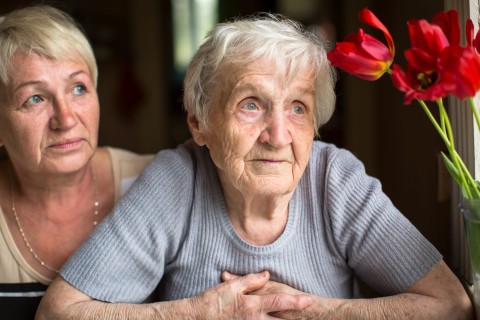It's important to have meaningful conversations with your senior parents and it can be hard to know what to say around them but there are some things that are clearly disrespectful.
Here are 5 things you should never say to them:
"You're not young anymore"
This is probably one of the most common things people say to their elderly parents. And while it may be true, it's also pretty insensitive.
It implies that your parent is somehow less important and less valuable because they're no longer young. It also implies that there's nothing more you can do for them and that they're doomed to spending the rest of their lives being old and useless.
As your parent gets older, it's important to remember that they still have feelings, thoughts and dreams just like anyone else. Even if they're not able to do certain things anymore or have lost the ability to perform certain tasks, that doesn't mean they've lost interest in life or become unimportant.
"When you're gone..."
This phrase might sound and be meant as a joke but is actually quite hurtful. It also implies that your senior parent could be gone at any time, which is not helpful for anyone involved. The reality is that we don't know what's going on in the minds of others when they make a comment like this – so best to steer clear of saying this.
"How do you know that?"
Asking someone why they think something is disrespectful because it implies that they're too old to understand or remember things properly. This can make them feel like their opinion doesn't matter as much as yours does. So be careful not to imply that your senior parent is wrong or lying. It’s not only hurtful but can make them feel embarrassed in front of others.
“What are you talking about?"
While it might seem obvious to you what your parent means when he or she talks about her doctor's appointment or plans for the day, it's important to pay attention to your parent's words and tone of voice. If you're not sure what they meant by what they said, ask questions until you understand what she wants from you. Using this phrase can come across as dismissive and not get the answers you are looking for and can cause them to feel embarrassed.
"Oh, you never did that"
This is a common response when children see their elderly parents doing something new. They may have never seen their parents use social media or talk about current events, but it doesn't mean their parents didn't do them in the past.
Older adults are always learning new things and trying out new hobbies. They may have been interested in something in the past but never had the time or resources to try it out then. So if they're trying something new today and you say "oh, you never did that," it will hurt their feelings and make them feel like they're being judged for not being as smart as everyone else.
"You should be doing more"
Your elderly parents are probably not as active as they used to be. You might try to encourage them to keep moving and get more exercise, but there's a chance that you're actually doing more harm than good by saying this. It’s important to remember your parents may not be able to do everything they used to do because of age or illness, but that doesn't mean they aren't trying as hard as they can.
As our mothers and fathers age and lose their independence, it's easy to forget that they aren't children. They are still individuals who live their own lives and have accumulated a great deal of wisdom over the years. Respecting them, even when they make decisions we don't agree with, is the best way to show our appreciation for all the support and love they've shown us throughout our lives.
Be grateful for your elders, and you'll likely have your own story to tell in your old age.

